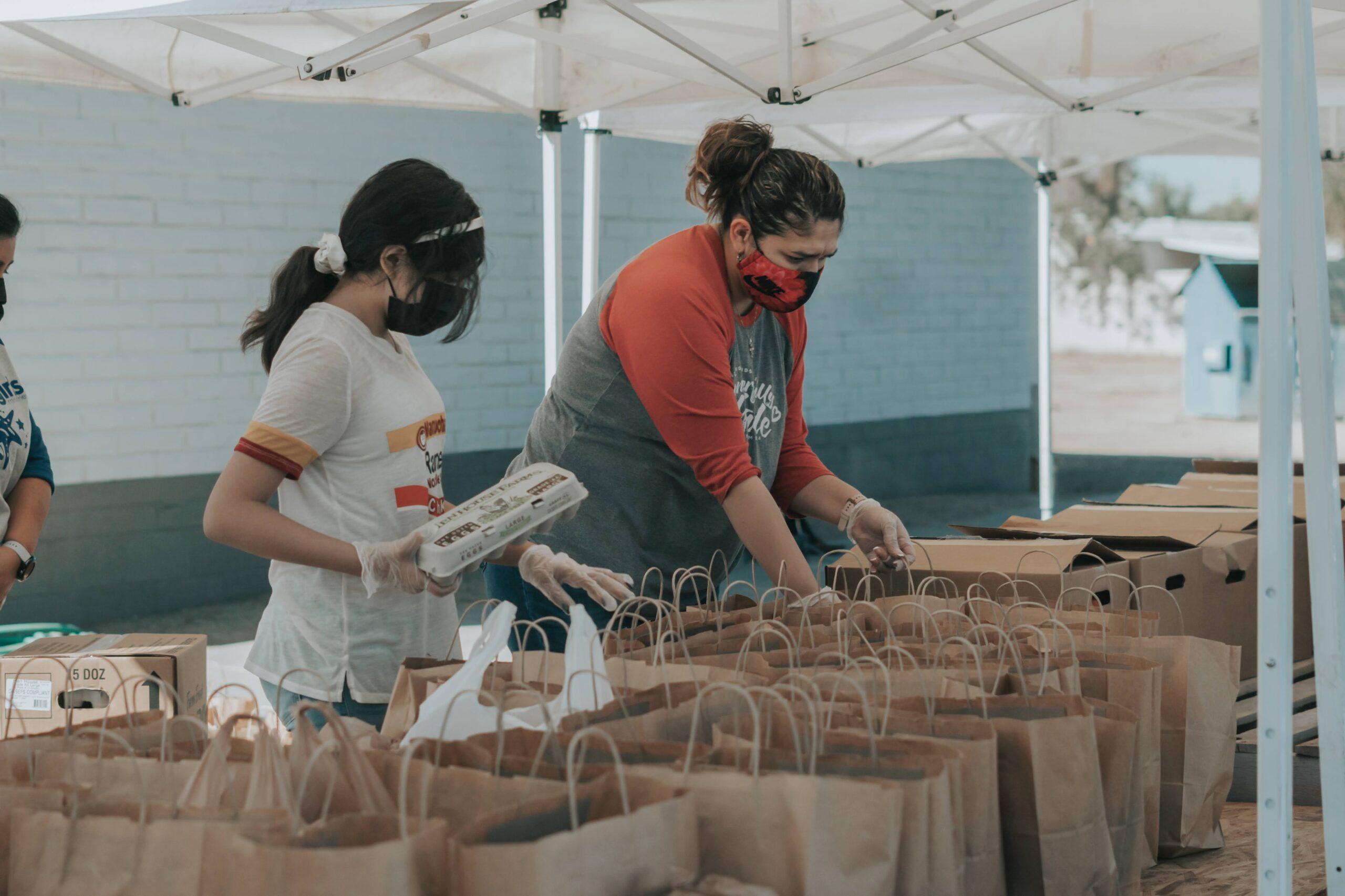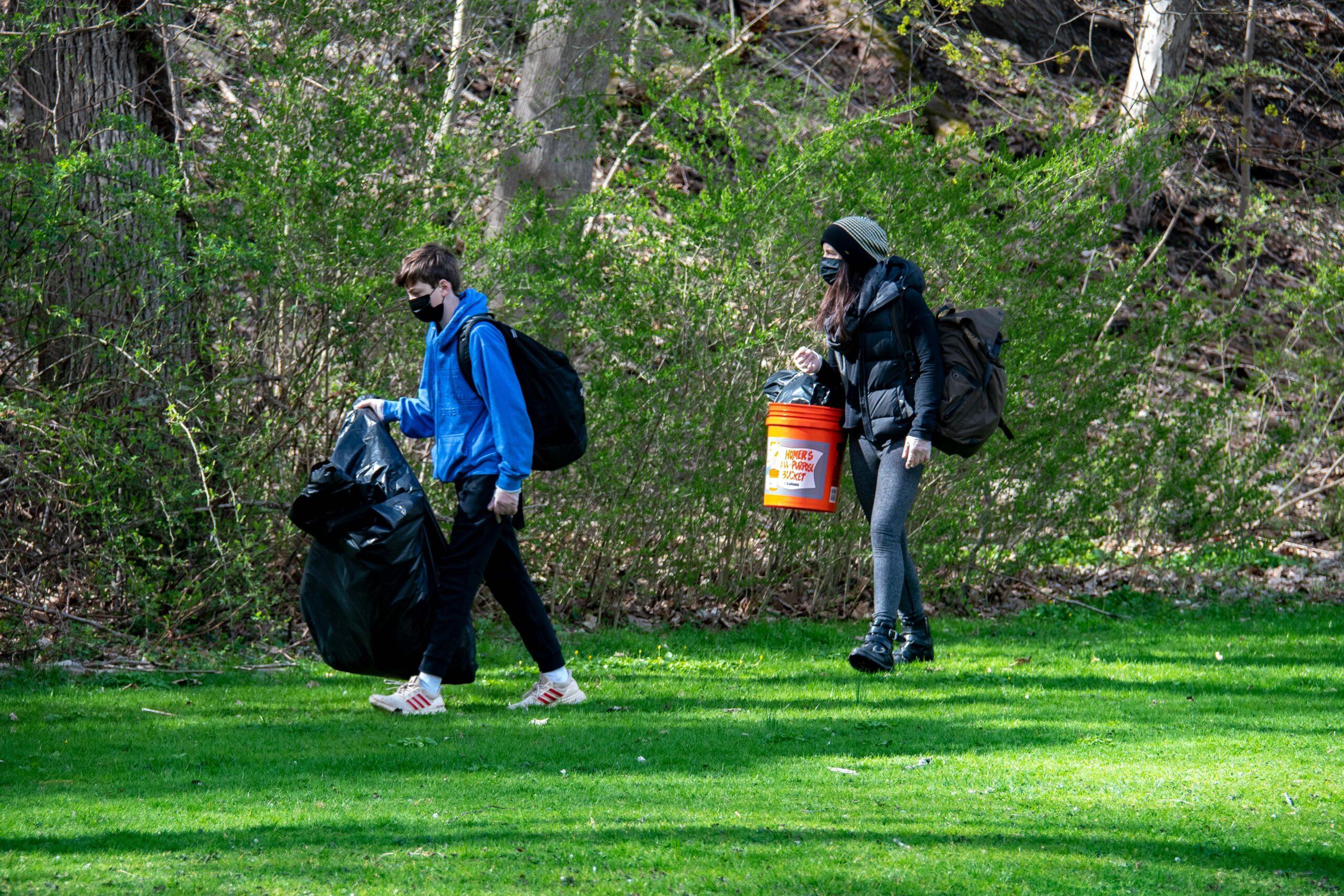Mitchell Smith, age 15, teaches at-risk youth how to sail a tall ship. Carly Mulder, age 12, interprets the life of a 19th-century child. And 16-year-old Haley McDonald walks dogs at an animal shelter. What do these three kids have in common? They’re among the estimated 15.5 million young people who participate in volunteer activities. And like many others, these three kids are finding they get back more than they give through volunteering. Here are some of the benefits Mitchell, Carly and Haley have found through acts of service— and that your child could gain, too.
Discovery of New Interests
Mitchell hadn’t done any sailing before he joined the Topsail Program at the Los Angeles Maritime Institute at age 12. But now his mom says Mitchell loves being aboard the 100-foot brigantines. “He found a passion for sailing,” says Mitchell’s mom Sandy. “It opened him up to a whole new world.” In fact, Mitchell often volunteers as an excuse to sail. In a word, he’s hooked.
Volunteering gives kids a chance to try new things. In the process they can uncover talents and interests they hadn’t been aware of. Some may even go on to pursue college studies and careers inspired by their volunteer experiences.
Broadened Perspective on Life
Volunteering also gives kids a chance to get outside of their neighborhood and have contact with people who are different from them. Whether kids serve at a museum or a food pantry, volunteering opens up children’s horizons. It exposes them to more of the world in a controlled environment where kids can feel safe.
Haley’s mom Bobbie has involved Haley in a variety of volunteering opportunities since a young age, including one while on vacation in the Dominican Republic. “We went to a farm and helped with a project,” explains Bobbie. “It was a huge, broadening experience, seeing that everyone doesn’t live the way you live.”
Increased Confidence
Youth volunteers gain valuable exposure while interacting with the public and people from all walks of life. Doing so requires young volunteers to exercise their communication and public speaking skills. In turn, this fosters confidence as students see the positive impact of their interactions.
Carly, a junior interpreter at the Naper Settlement living history museum in Naperville, Illinois, learned early on that part of her role involved greeting museum visitors and fielding questions about the games and other activities she demonstrates. Carly’s mom Karin notes she’s seen Carly’s confidence improve from her daughter’s involvement at the museum. “She’s learning how to interact with the public and how to have confidence in dealing with other people.” Wearing a costume and imagining herself as a person from a different era helped Carly’s confidence to soar, as did special training provided by the museum.
Even behind-the-scenes roles can instill confidence as kids find success in completing the tasks they’re given. And connecting with fellow volunteers and coordinators can be enough to help reticent youngsters come out of their shells and develop valuable social skills. For some kids, simply the act of sharing their time and being valued for their service can build self-assurance.
Greater Responsibility
Though many volunteer opportunities are one-time events, children can also sign up for regular shifts. Being committed to an ongoing position requires responsibility and dedication. Mitchell’s mom points out that it makes her son prioritize his activities. Mitchell has to decide whether he’ll sign up for a sailing shift or do something else on a particular day. Carly’s mom sees how it has helped her daughter to learn the importance of following through on obligations.
Kids often get the chance to enjoy increased responsibility in the roles they play and the tasks they perform as volunteers. While Mitchell has learned how to sail a tall ship, he also teaches others while volunteering. Carly says she hopes one day to move up in the ranks where she volunteers in order to to give tours in one of the museum’s buildings. In what ways would your children flourish while assuming responsibility as volunteers?
Endless Enjoyment
When kids find a volunteer position that fits them well, the common response is, “It doesn’t feel like work.” When the position and the child’s interests match, it seems like a chance for the young volunteer to get out and play. As a bonus: Volunteering for an enjoyable activity can be a wonderful step in helping kids discover their vocation.
Taking along a friend to a volunteer opportunity, as Haley frequently does, adds to the experience. In fact, group settings and programs can be a good introduction to a volunteering opportunity. For example, Boy Scout and Girl Scout troops and religious youth groups often encourage participants to volunteer at youth-friendly activities.
When kids have fun during an initial stint, they’re more likely to sign up for volunteering in the future. After a while, they’re signing up because it’s something they have taken ownership of and thoroughly enjoy.
Don’t underestimate what your children might have to offer as volunteers. And don’t underestimate the positive impact that experience can have on your children. As these three young people have found, there’s a lot to be gained by devoting one’s time to an organization or cause.
Places That Take Youth Volunteers
- Hospitals
- Animal Shelters
- Museums
- Food Pantries
- Libraries
For other opportunities, go to volunteermatch.org, an online database of organizations desiring volunteers that allows you to search for openings available to children and teens.
Tips on Getting Started
- Look for a one-time opportunity for kids to try out volunteering, such as at a food pantry.
- Volunteer alongside your child. It serves as quality time to bond and models the spirit of volunteerism.
- Watch for chances to pair a child’s interests with a service activity.
- If the first volunteering experience doesn’t work, research another place where your child may serve.
- Take a long-term view. Continue helping your children get involved in volunteering. As psychologist and mother of a young volunteer Dr. Bobbie McDonald points out, “Anything you involve kids in on a regular basis, they’re likely to continue into adulthood.”



